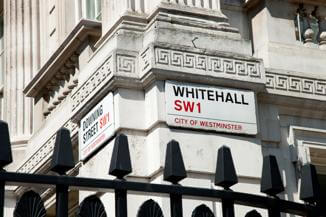Making a positive impact on the world and feeling connected to a community or movement are some of the positive side effects experienced by the large majority of trustees.
Those were some of the results of a new national survey that was undertaken on behalf of the Charity Commission. The survey also showed that legal services are the type of skills that trustees most often source from outside of their board. We set out below an overview of the latest legal and regulatory developments to support charities.
1. Revised Code of Fundraising Practice effective 1 November 2025
The Fundraising Regulator has published a significantly updated Code of Fundraising Practice, which will come into force on 1 November 2025. This new Code adopts a principles-based approach, moving away from prescriptive rules to enable fundraisers to apply good judgement across various fundraising methods, including emerging techniques. The new code is shorter than its predecessor and intended to be more user-friendly.
Action for charities
During this transition period fundraising charities should familiarise themselves with the provisions of the new Code before it comes into effect on 1st November 2025 and consider, in particular, how to comply with their obligation to take reasonable steps to protect fundraisers from harm and harassment and foster an environment where their concerns can be raised safely.
Charities can seek advice from the Fundraising Regulator via the Code Advice Service.
Additionally, the Code Advice Service remains available to provide tailored guidance on applying the Code, accessible to professional fundraisers, volunteers, and the public.
2. Enhanced consumer protection powers for the Competition and Markets Authority
The Digital Markets, Competition and Consumers Act 2024 (DMCC) has significantly expanded the CMA’s powers to enforce consumer protection laws, with important implications for charities engaging (directly or through their trading subsidiaries) in consumer-facing activities. You can read more about the new regime in our full article: The DMCC Act and consumer protection: Investigation, fines and other measures which the CMA can take.
Action for charities
Charities should review their consumer-related practices, including trading and fundraising activities that may fall within the remit of the Competition and Markets Authority (CMA) to ensure compliance with consumer protection legislation.
3. For charities set up as companies
a) New protection for trustees’ personal details
New regulations are expected to come into force in late July 2025 which will allow directors of charitable companies to apply for the day of their date of birth, their signature, their business occupation and their usual residential address to be made unavailable for public inspection without needing to justify the application or meet qualifying criteria.
b) The Economic Crime and Corporate Transparency Act 2023 (ECCTA)
The ECCTA applies to large companies and Royal Charter corporations with charitable status which meet at least two the following three criteria: more than 250 employees. more than £36 million turnover, more than £18 million in total assets.
ECCTA creates a new duty for such corporations to prevent fraud. You can read more about this new duty in our article Economic Crime and Corporate Transparency Act 2023: Impact of changes implemented on 4 March 2024.
Action for charities: Pursuant to ECCTA, identity verification of People with Significant Control (PSCs) will become mandatory in Autumn 2025 (at the earliest). In the meantime, Companies House has provided an update on the implementation of voluntary identity verifications for PSCs. You can read more about the new regime in our article Economic Crime and Corporate Transparency Act 2023: Voluntary ID verification available from 8 April 2025.
4. New Charity Investment Governance Principles
The Charity Finance Group has published new voluntary Charity Investment Governance Principles to complement the Charity Commission’s guidance (CC14).
The Principles offer a practical framework to improve investment governance across charities of all sizes, from under £1 million to over £20 million in investments. Designed to complement existing regulations and the Charity Governance Code, the seven voluntary Principles guide charities on what they must, should or are recommended to follow. These cover:
- understanding the purpose of investments to align with the charity’s mission;
- providing strong leadership with clear governance and delegation; ensuring integrity by prioritising charity purposes and managing conflicts;
- establishing effective decision-making, risk and control systems with professional advice;
- maintaining effectiveness through skilled oversight and ongoing learning;
- promoting equity, diversity, and inclusion in investment decisions; and
- committing to openness and accountability through transparent reporting.
Together, these Principles.
5. The concept of sex is binary: For Women Scotland v The Scottish Ministers Supreme Court
Read our full article The concept of sex is binary: For Women Scotland v The Scottish Ministers Supreme Court case explained.
6. Updates from the Charity Commission
a. Updated guidance
Finding and appointing new trustees: On the back of the above mentioned national survey, the Charity Commission has updated its guidance on Finding and appointing new trustees (CC30) - GOV.UK as well as on who is eligible to be a trustee and what skills they need to have.
Payments to trustees: The Commission has updated its suite of guidance documents regarding payments to trustees for providing goods or services to the charity, employing trustees, for carrying out trustee duties or compensating trustees for loss of earnings. To note that the overarching prohibition of paying trustees for acting as trustees remains in place and explains in what circumstances charities can rely on statutory powers to make certain financial or other benefits available to trustees or people connected to them.
b. Key takeaways from recent regulatory activities of the Charity Commission
Statutory inquiry into an unregistered charity: The Charity Commission has opened a statutory inquiry to examine regulatory concerns regarding the trustees’ management and administration of The Muslim Community Centre and Mosque 1977, an unregistered charity. While we don’t know the reason for this charity being unregistered, the inquiry constitutes a reminder that the absence of registration does not amount to an absence of regulation.
Official warning issued over investment deal which caused £1 million loss to charity: The East London Mosque Trust invested £1 million in an NHS-approved supplier, expecting a 20% return in six months. However, the supplier went into administration, resulting in a loss. The Charity Commission found that the trustees had not conducted adequate due diligence or maintained proper oversight. This failure to act with reasonable care and skill was deemed misconduct and/or mismanagement. The Commission issued an Official Warning, requiring the charity to strengthen financial controls, improve oversight, and conduct an independent governance review. The charity must report its findings and make reasonable efforts to recover the lost funds to protect its assets.
Statutory inquiry into charity due to ongoing concerns over its long-term financial viability: The Commission has opened a statutory inquiry into Seven Dials Playhouse due to concerns over its financial management and long-term sustainability. The charity has been under regulatory scrutiny since 2024 following its decision to sell a Central London property and issues around governance. Despite submitting revised business plans, the Commission remains unconvinced of the charity’s financial viability and sees significant risk to its funds. The inquiry will investigate whether trustees have met their legal duties, managed the charity in line with its governing document, and whether there has been misconduct or mismanagement.
7. The Exposure Draft SORP
You can still participate in the consultation until 20 June 2025.
Contact

Nathalie Jacoby-Danesh
Partner
nathalie.jacoby-danesh@brownejacobson.com
+44 (0)330 045 2833








































